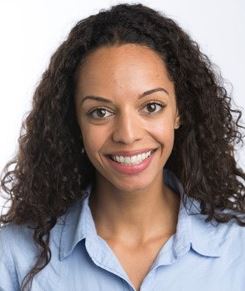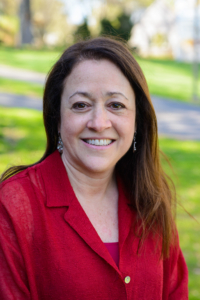

Psychological Complexities of Immigration
October 19, 2018 @ 5:30 am - 10:00 am
Psychological Complexities of Immigration
Presented By: Caitlin Dickerson, Chris Raab, M.D., Sanjay R. Nath, Ph.D., Nimisha Ladva, and Julia Mayer, Psy.D.
Program Coordinator: Lori Romano, Ph.D.
PCOM 4107 City Avenue Philadelphia, PA 19131
Registration 9:30 AM Panel 10:00 AM- 2:00 PM
October 19, 2018
4.0 CE
Act 48 Credit
The Immigrant and refugee population migrating to the US face a host of complex circumstances and personal trauma. When “forced” to leave their homeland due to political unrest, war, and conflict, the risk of mental health and medical issues are much greater than that of the general population.
According to a Philadelphia-research initiative, published by the PEW foundation, in 2018, an estimated 390,000 residents were either immigrants or U.S. natives with immigrant parents. This includes nearly 76,000 children under age 18 which translates to about 1 in 4 city children.
Many children and families struggle to negotiate and become a part of local systems due to a lack of understanding, support and financial resources. Cultural and language barriers and uncertainty about immigration status, further complicate immigrants ability to access both medical and mental health services.
Our program will serve to introduce psychologists to these complex issues so that we can better serve this diverse population.
Caitlin
 Dickerson, New York Times Journalist
Dickerson, New York Times Journalist
Caitlin Dickerson is a national immigration reporter based in New York. Since joining The Times in 2016, she has broken news about changes in deportation and detention policy, and profiled the lives of immigrants, including those without legal status. She frequently appears as a guest on “The Daily” podcast, and has filled in as its host.
For The New York Times Magazine, she wrote about the real-life impact of fake news on a small town in Idaho that was turned upside down by anti-refugee rumors that were elevated nationally by Facebook accounts linked to the Russian government and people who went on to hold key roles in the Trump administration.
Before joining The Times, she was an investigative reporter for N.P.R., where her work was honored with a George Foster Peabody Award and an Edward R. Murrow Award. She was also a finalist for the Livingston Award.
As a result of her investigation into secret mustard gas experiments conducted on American troops by the United States military, a law was passed in 2017 to provide test subjects compensation for their injuries.

Christopher Raab, MD is the director of Nemours Refugee Clinic and has provided both screening and a medical home for refugee children. The Nemours Refugee Clinic was the first pediatric refugee clinic in Philadelphia. The purpose of the clinic is to provide outstanding, age-appropriate culturally competent care in a medical home model to the child refugees of the Philadelphia area. Dr. Raab is a member of the Philadelphia Refugee Health Collaborative and works closely with other members, including all three resettlement agencies in Philadelphia.
The unit provides care to over 100 new refugee children per year as well as all of their follow-up and acute illness appointments. Stacy Irwin, RN, NP also provides direct care and coordination for the refugee clinic. The clinic is staffed by a dedicated team of physicians, residents, medical students, nurses, medical aides and administrative support personnel.
 Sanjay R. Nath, Ph.D.
Sanjay R. Nath, Ph.D.
As the director of the PsyD program at Widener, I am interested in how to best train graduate clinical psychology students in 21st-century practice, based upon a scholar-practitioner model. Part of this is keeping abreast of how the Affordable Care Act and other changes in the current practice landscape impact the field, and keeping an interest in inter-professional training and how care is provided in integrated care settings. Additionally, I have a keen interest in how to best train students to work with difference, particularly as our society becomes diverse, and sameness and difference across multiple dimensions (age, disability status, race/ethnicity, gender, sexual orientation, etc.) impacts both the treatment alliance and treatment process. I identify as a psychodynamic therapist, with an active private practice, who utilizes these experiences to infuse my teaching and research interests with relevance for the practitioner of tomorrow.

Nimisha Ladva
Nimisha Ladva is an award winning writer and storyteller. She is the current Philadelphia MOTH Grand Slam winner. Her stories have been featured on NPR’s CommonSpace and Newsworks programs as well as numerous podcasts. She teaches at Haverford College.
 Julia Mayer, Psy.D.
Julia Mayer, Psy.D.
Dr. Mayer is a clinical psychologist who has been counseling individuals and couples for almost 30 years. Dr. Mayer has a private practice is in Media, Pennsylvania, where she specializes in women’s issues, including caregiving and other relationship concerns. She is the current President of PSCP: The Psychology Network. She has held adjunct teaching positions at the Institute for Graduate Clinical Psychology of Widener University and in Widener University’s undergraduate programs. She was also an instructor for the Master’s Program in Creative Arts Therapy at Hahnemann University, teaching courses on human development and psychoanalytic theory. Her novel, A Fleeting State of Mind, was published in 2014. Dr. Mayer received her bachelor’s degree from the University of Pennsylvania and her doctorate in psychology from Widener University.
